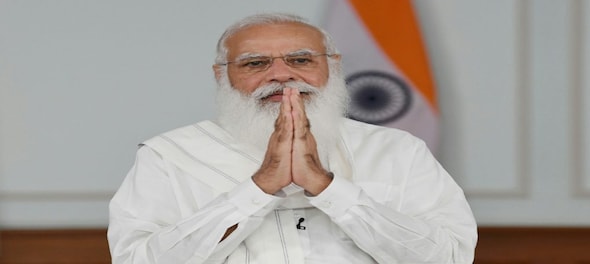
Narendra Modi was first sworn in as the Prime Minister of India on May 26, 2014, after the Bhartiya Janata Party-led National Democratic Alliance won a mandate in the 2014 general elections. He was re-elected for the second term in 2019. For the past eight years, the government under the leadership of PM Modi has taken several landmark decisions that transformed India. These included demonetisation and the Swachh Bharat Abhiyan.
As he turns 72 on September 17, here’s a look at his 10 big decisions.
Demonetisation
To the surprise of the nation, the PM announced the withdrawal of Rs 500 and Rs 1,000 currency notes on November 8, 2016, from public use, creating a huge stir in the country. Modi had outlined three main objectives for the sudden move – to tackle black money, fight corruption and contain terror funding. Some political experts claim that the decision failed to make the impact it was supposed to.
Swachh Bharat Abhiyan
The Swachh Bharat Abhiyan or the Clean India Mission was one of the most significant campaigns by the government under Modi. Launched on Gandhi Jayanti on October 2, 2014, the campaign aimed to eliminate open defecation and improve the solid waste management system.
GST
After being in the works for 17 years, the Goods and Services Tax (GST) came into effect on July 1, 2017. The indirect tax reform replaced multiple taxes levied by the Centre and the states. The states were assured compensation for loss of any revenue due to the implementation of GST under the provisions of the GST (Compensation to States) Act, 2017 for five years.
Triple Talaq
On August 1, 2019, the government passed the Triple Talaq Bill despite resistance from the Opposition. The decision brought huge relief to Muslim women who were forced to terminate a relationship by their husbands saying talaq three times.
Abrogation of Article 370
The government nullified Articles 370 and 35(A) of the Indian Constitution on August 5, 2019, which gave Jammu & Kashmir its special status and the mandate to define its domicile rules. The government followed it with the bifurcation of the erstwhile state into two Union territories. According to Modi, there has been unprecedented peace and progress in the region since the landmark decision. However, many political parties opposed the decision and a number of leaders were placed under house arrest. The internet was down for months in the two Union territories.
Surgical Strike
On September 18, 2016, 19 soldiers of the Indian army were killed by a sudden attack by Pakistan-based terrorists on an army base in Kashmir’s Uri. Following the attack, the Indian government ordered a surgical strike to be conducted in Pakistan Occupied Kashmir (PoK). Over 40 terrorists were killed in the surgical strike and all terror launchpads were destroyed.
Balakot Air Strike
In another major terrorist attack on the Indian Army in 2019, terrorists killed 40 CRPF jawans in Pulwama. This time, the Indian Air Force carried out an air strike in Balakot of Pakistan Occupied Kashmir on February 26 and bombed terror launch pads there. However, Wing Commander Abhinandan Varthaman crashed in PoK and was taken captive by the Pakistan forces. He was later released by Pakistan.
Bank mergers
The government announced the merger of 10 state-owned banks on April 1, 2020, to form four big banks. The objective of the move was to provide relief from rising non-performing assets (NPAs) and better banking facilities to consumers. The merged banks included United Bank, Oriental Bank of Commerce, Allahabad Bank, Syndicate Bank, Corporation Bank and Andhra Bank.
CAA
The government implemented the Citizenship Amendment Act (CAA) on January 10, 2020. The move sought to amend the definition of an illegal immigrant for Sikh, Hindu, Buddhist, Parsi, and Christian immigrants from Pakistan, Afghanistan and Bangladesh, who have lived in India without documentation. There were widespread protests across the country against the Citizenship Amendment Act (CAA).
Relief for the telecom sector
In a big boost to the cash-strapped telecom sector, the government approved a massive relief package for service providers in 2021 including a four-year moratorium on payment of statutory dues and allowing 100 percent foreign direct investment through the automatic route.



